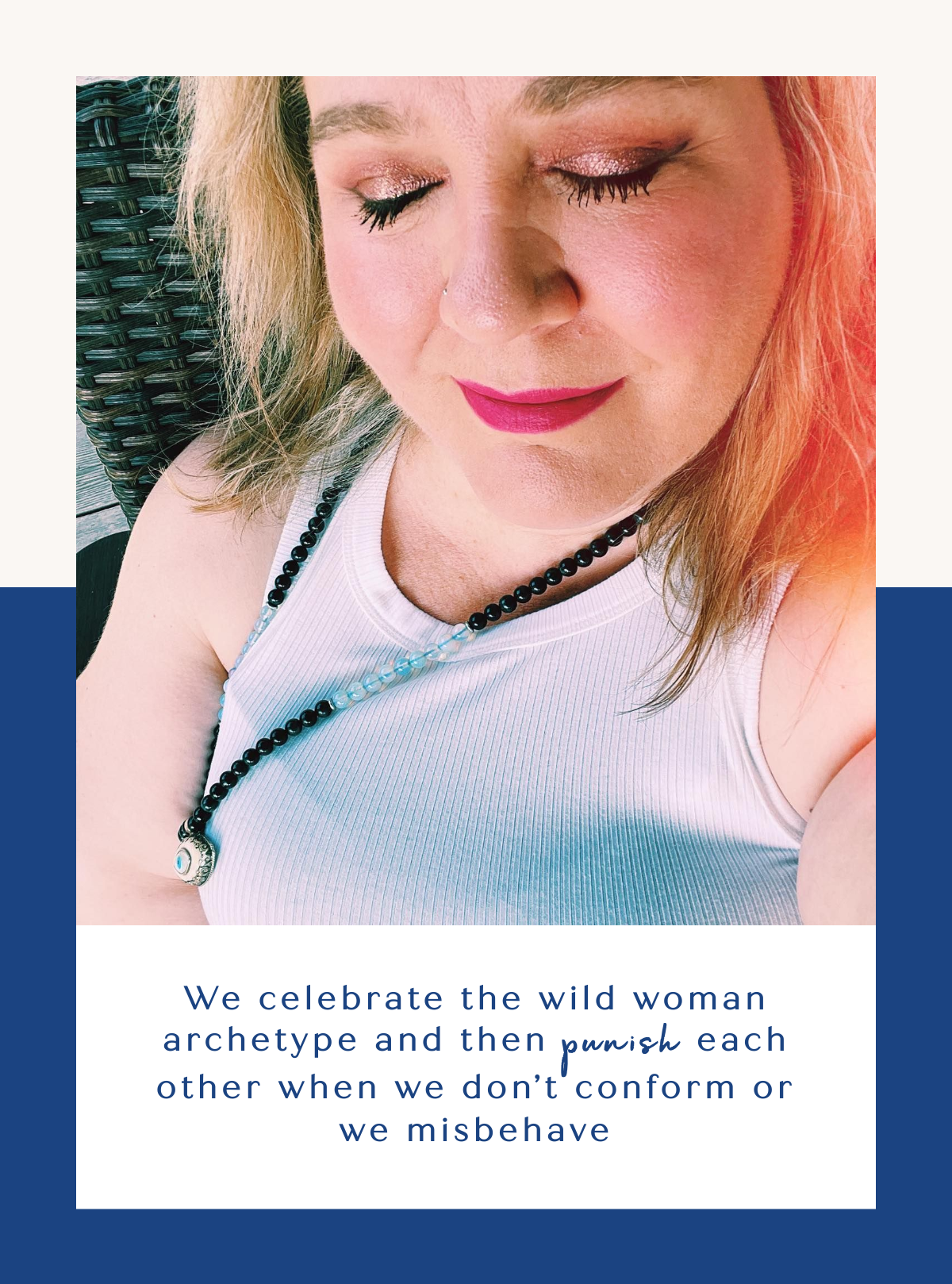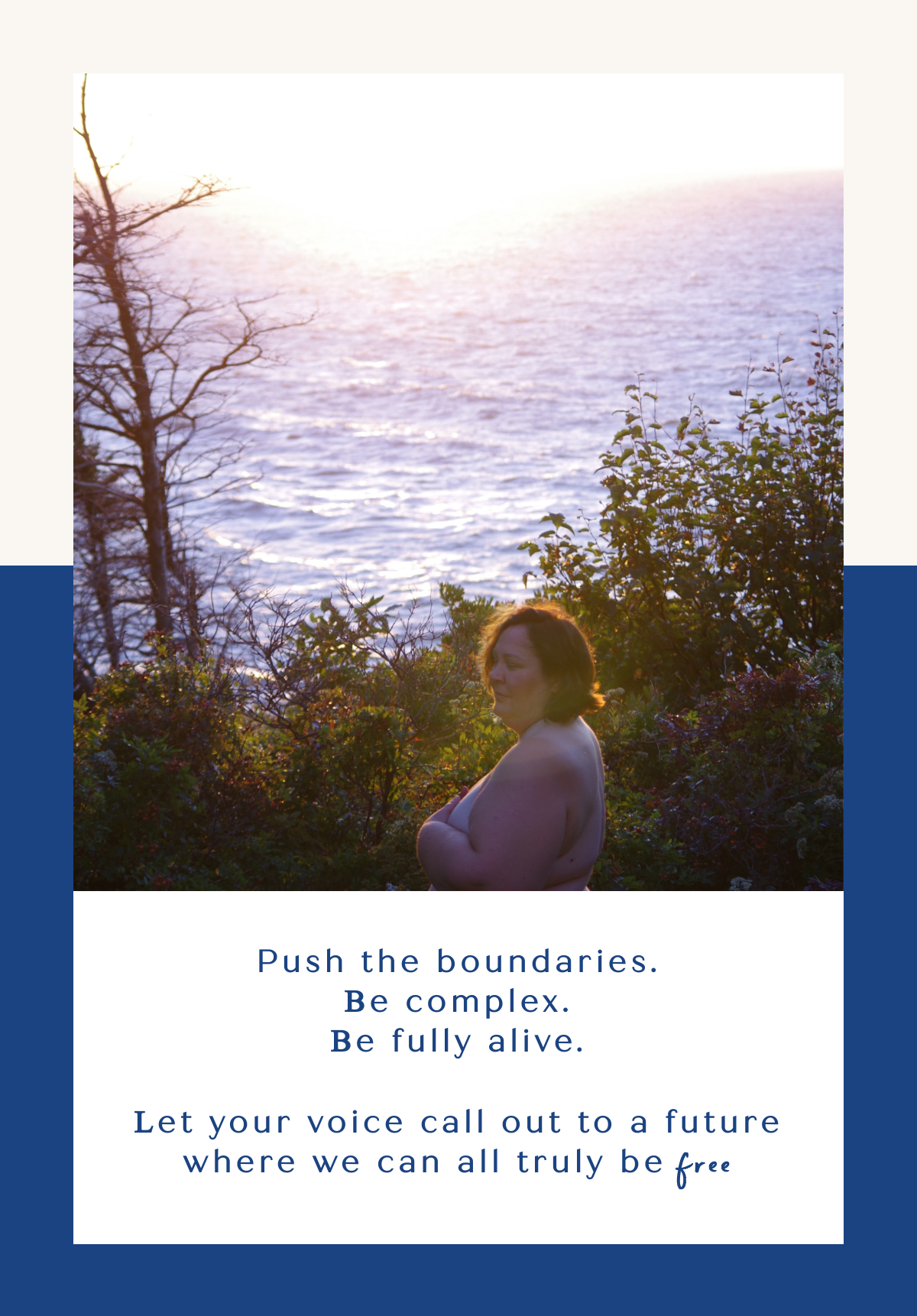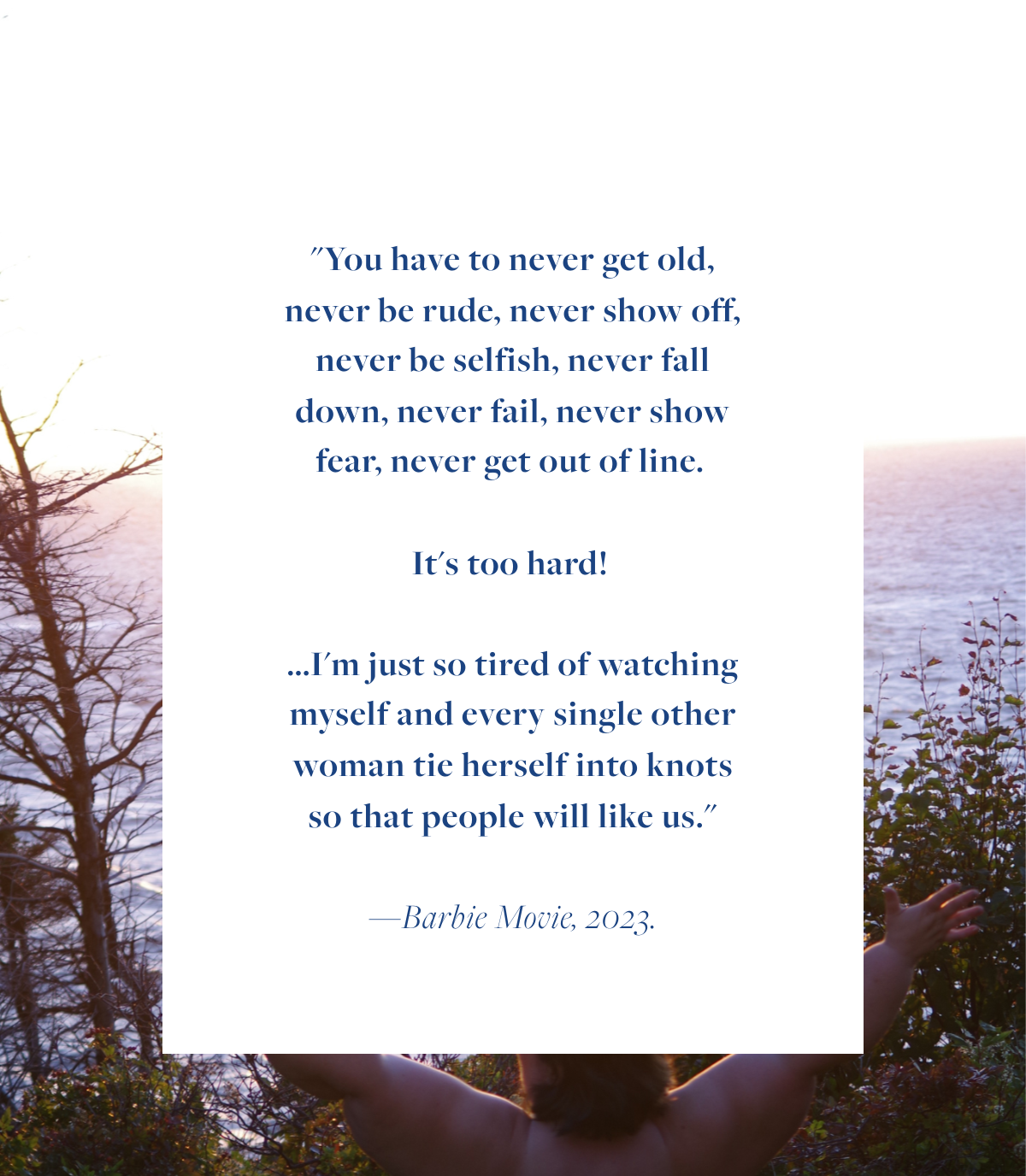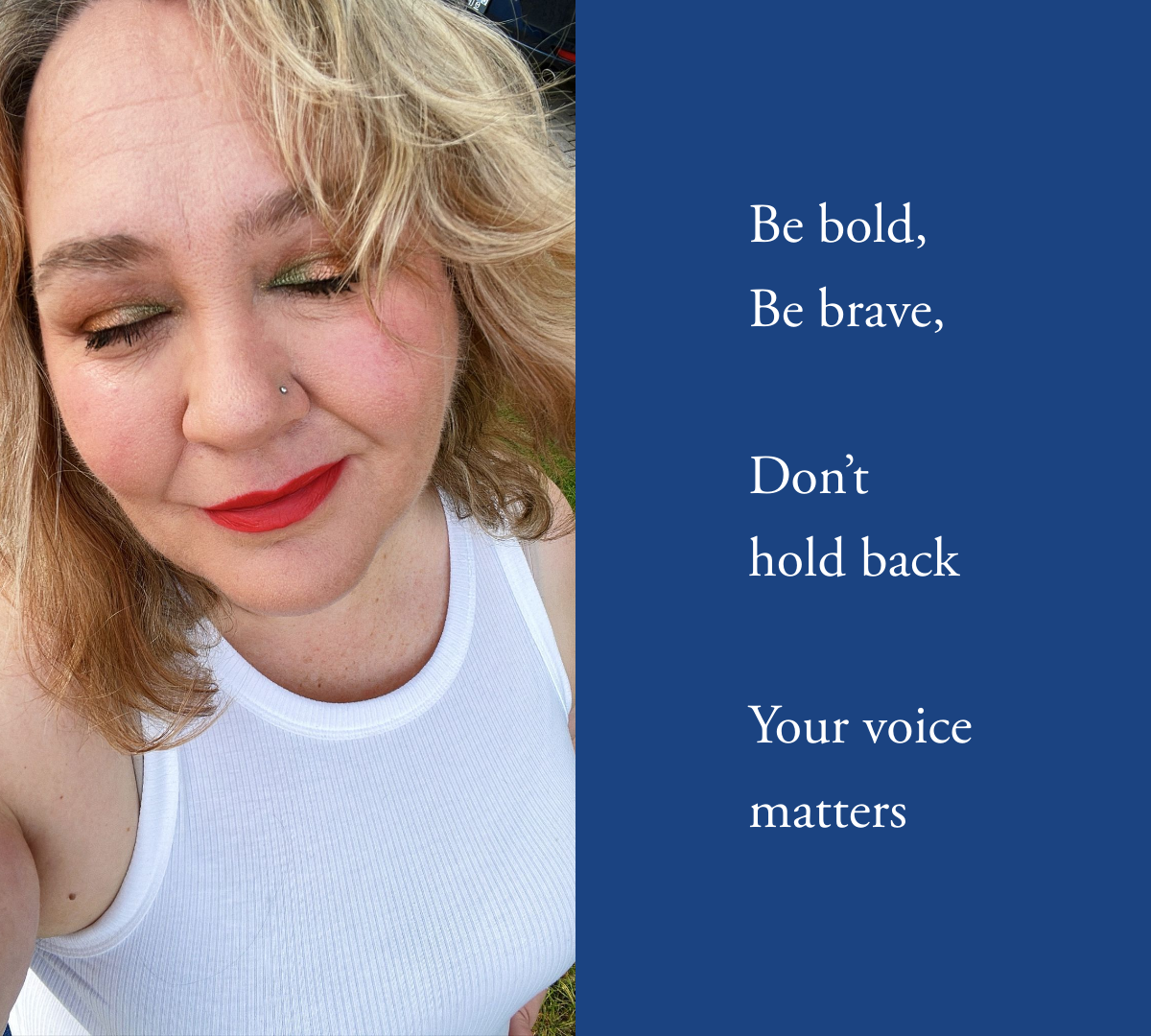The Impossibility of Being a Woman:
A Sinead, Magdalene & Barbie Mashup

For most of my life, I’ve played the role of the smile-pretty-good-girl. If you’d met me in high school I was anything but the punk that deep down I wanted to be.
I secretly loved the girl who drew flowers on her hairy legs and hung out with a community theatre girl who played the role of the rebel with her safety-pin earrings and huge mohawk. We were really the same inside despite our very different appearances. We’d go into her room at smoke-filled parties and read T.S. Eliot’s Prufrock and Wasteland to each other.
When I saw and heard Sinéad O’Connor for the first time, she was like a lightning bolt to my entire being. Like my friend (and who I wanted to be), Sinéad was bold, not afraid of her anger, slightly dangerous, and had something meaningful to say.
Many years later I would shave my head, put on a pair of Doc Martens, and boldly use my voice but when I was 15 years old Sinéad represented a promise that being a girl could be so much more than I ever thought it could be.
Later I would find Tracy Chapman’s revolutionary cries for justice, Tori Amos’ Crucify and Ani DiFranco’s reminder that you could be both tough and soft. All of these women offered alternate views that rocked my smile-pretty-good-girl to her core.
At the same time, I discovered bell hooks’ from margin to centre and freaking badass goddesses who were all shapes and sizes from all around the world.
These are the roots that informed and strengthened my rebellious spirit over my entire life.

Fast forward: I was mostly through grad school with my head down in many many books, interviews and fieldwork. I’d come out as a lesbian (which was very distracting in my early 30s) and had basically written a book over 7 years that only a few people would ever read.
I looked up from all those books and the goddess I was seeing now only represented a fraction of the population. I didn’t recognize her.
At the same time, there was a lot of talk about celebrating the wild woman archetype while there was an increase in cancel culture within the very spaces I’d sought refuge in.
Each word I spoke or wrote during those first few years of intense call-outs felt like it needed to be carefully crafted in order to stay out of trouble.
Forgetting my rebellious roots, I reverted to people-pleasing. I found myself playing the part of the smile-pretty-highly-sensitive-empath-good-girl that I saw performed all around me.
Now, this doesn’t mean that I’m not a sensitive empath or that I don’t value all the things I’ve ever said I value. I do. I’m still the girl who would rather read poetry in a smoke-filled party than anything else. And my true essence still loves to skip down the street chasing butterflies in love with the wonder of the world.
But I’ve also learned that when you only focus on one part of your personality (no matter what it is) you cut off other parts and that’s never a good thing. We’re aiming for wholeness here. The smile-pretty people-pleasing took me out of my essence.
In a way, it was easy because it made me likeable, successful, and (most importantly) kept me out of trouble. People pleasing and smiling pretty was what I had always done when I felt threatened or unsafe. And let’s face it, is there a woman alive who hasn’t felt threatened or unsafe simply for being herself?
I sought out controversial women again.
Much to my non-Christian surprise, Mary Magdalene became a central figure in my life. I loved her rebellious spirit just like I loved Sinéad’s, Tracy’s, Tori’s and Ani’s.
Here was this woman who had been villainized and twisted by the patriarchal Church fathers and whose words had been removed and buried from history for a very long time. Magdalene was a call to raw courage and I was listening.
I wanted more Magdalenes. I wanted voices who were not afraid to say that the emperor had no clothes. I wanted healthy expansive expressions of body positivity.
I wanted women who spoke out against public shaming and self-censoring.
And then something interesting happened.
I started to say all that I was afraid to say. I celebrated the punk rock spirit inside of me, which I thought I had buried so deep down that no one could possibly see it.
Because deep down I was afraid of being kicked out of the Garden like I’d seen happen to so many others.
And like many wild women before me, I was punished for it.
In the punishment, I realized that I didn’t have to hold on anymore. I could let go. I was already in trouble and perhaps being a girl who wasn’t afraid of her own voice was exactly who I needed to be.
I started rebelling against the role I found myself playing because no one can hold on to this smile-pretty role for long without wanting to scream at the top of their lungs or break everything down. Even Barbie couldn’t.
[Now, here’s a spoiler warning. I really don’t give much away but if you haven’t seen the movie and don’t want to know anything about it, flag this email and read the rest later.]
It will most likely not come as a surprise that the movie made me cry (I am still sensitive after all). Not only did the astute commentary on the negative effects of patriarchy get me, but it also showed a woman leaving her world and all that she knew in order to find out she was not who she thought she was and didn’t want to be anymore. Yeah, that part really got me.
And, I can’t imagine a more controversial figure than Barbie.
She represents an impossible beauty standard that has been commercialized in ways that many of the controversial figures I’ve talked about so far fought against. The movie did a pretty good job of addressing some of these issues, but this is also not a critical review of the movie. This is about what happened in the car after we went to see the movie…

As an anthropologist, I’m trained to understand, analyze and interpret culture. I’ve ruined many a movie for my poor partner Stacy. But this time, instead of getting in my head, I just wanted to sit in the feeling that was evoked at having watched and heard these powerful statements about the impossibility of being a woman.
I thought of Sinéad and how she was absolutely hated by so many for being a woman with a strong point of view who was not afraid to share it.
I thought about how it was Magdalene’s feast day last week and how her message and mere presence were so threatening entire generations of women live with shame over their bodies and sexuality.
I thought about what happened to me when I finally stopped people-pleasing and decided it was way more important to be myself than some shell of a version that made other people comfortable.
I thought of all the women I’ve seen crucified over the years.
And I just cried. Big ugly impossibly beautiful tears.
I cried for everyone who has ever felt like they couldn’t be themselves, had a different point of view, or felt like they didn’t belong and were punished for it.
I cried for the wild women who thought it was okay to be wild only to be told later they were too much.
I cried for a world where we are so disconnected from ourselves and each other that we keep creating quick enemies of each other.
Of course, I also cried for myself and all the time I wasted loving controversial women from afar but being terrified to be one myself.
Already in a place of EMERGENCE,
I asked myself, What would Sinéad do?
What would Magdalene do?
What would the new Barbie do? Yes, I just wrote that.
“Use your voice,” they said.
“Just use your voice and DON’T STOP USING IT.”
If you’ve gotten this far, I have a feeling you needed to hear this too!

